What You Will Need
Firstly, you will need food for your new puppy. We choose to feed our dogs 'Royal Canin', which is a premium quality pet food available from most vet clinics and some pet stores. Find out what your breeder is feeding your puppy, and see if you can get the same food to avoid tummy upsets and diarrhoea from sudden changes of diet.
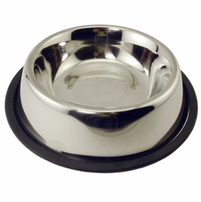
Dry biscuits are essential for your puppies food, and we chose to feed Royal Canin, which is a premium quality food available from most vet clinics. Healthy and well balanced dry biscuit, supplying nutrients, vitamins and calcium required for the healthy development of puppies. Stainless steel bowls are great for food, as they are the best and most easily kept clean. Make sure you provide one bowl per puppy.
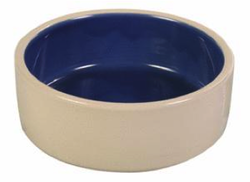
Make sure fresh water is always available and easily accessible, having more than one water bowl around for your puppy is a good idea. I always use ceramic dog bowls for water, this is not only because it helps to keep the water nice and cool throughout the day, but also prevents the bowl from easily tipping over.
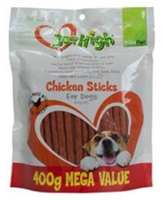
Treats are a great way to a puppies heart – just don’t let it get out of control. I use JerHigh treats for training and obedience sessions, I otherwise provide alternative treats for boredom busters throughout the day, such as a whole raw carrot, or Peanut Butter smeared inside a Kong toy. Another great treat is puppy ice-blocks in summer. You can make them yourself by freezing chicken/soup stock in an ice-cube tray and serving them in a bowl for your pooch to play with and cool down.
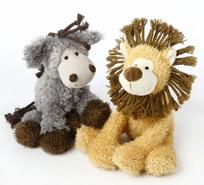
Comfort toys are a must have for all young puppies in a new environment. A soft plush toy, that is dog friendly (no eyes or buttons which might pop off, be swallowed, or cause choking) will assist your puppy with settling in to their new home. If you can rub the toy on the litter mates when you pick your puppy up, this will be a bonus. Allowing the soft toy to absorb the scent of a brother or sister, will provide a familiar scent to your pup when they are in a new and unfamiliar environment. Placing a ticking watch or small clock wrapped in a blanket near the comfort toy, will also aid in soothing your pup on those first few nights. With the scent of a littermate, and the ticking watch sounding like a heart beat, this will aid in comforting a new puppy while they settle in.
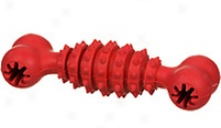
Teething toys, treat balls and other interactive toys are available. There are a wide range of toys on the market, and all serve a different use and purpose. For any ideas or further information on toys, just ask. I like to take toys away from puppies of a night time, and return toys of a morning. I will not give a puppy all their toys at once though. I will give 2 or 3 toys at a time, take them away at night and replace with a selection of 2 or 3 different toys to the day before. Alternating and getting into this routine, is a great way to a well-trained and well-behaved puppy. Rotating the toys will also prevent boredom, and each day will be exciting and like they are receiving something new .
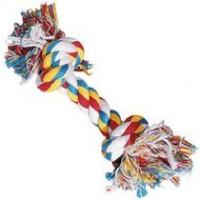
Rope bones are fantastic for keeping teeth clean and strong. To attract your puppies to these toys, you can allow them to soak in a bowl of chicken stock over night. The rope toys will absorb the flavour and encourage your puppies to want to use them.
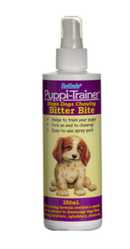
Chewing preventatives are available to stop puppies chewing things they shouldn’t. Bitter bite/ bitter lime spray is available to spray things such as shoes, plants and cables. It is best to puppy proof, and not leave such things laying around. Don’t rely solely on the deterrent spray, but Bitter bite spray works well in conjunction with offering alternatives, such as rope toys, to aid in teaching your puppy what is and what is not ok to play with.
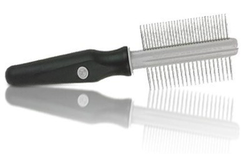
Brush/comb is a necessity to keep your canines in top condition. Getting your puppy use to a comb running through their coat is important, it also gets you in the routine of checking your puppy to avoid matting, ticks and other nasties.

Shampoo and conditioner will be something you need if you plan to groom your dogs at home. Though it is important to have these products, it is also important to know that they must be used in moderation and don’t overdo it. You shouldn’t bathe your dog more than once a month as this can dry out their skin and cause irritation. Make sure you use a puppy shampoo, or one specifically made for dogs, as human shampoos can again cause irritation and dry out the skin. Conditioner is also available for dogs, and keeps the coat moisturised.
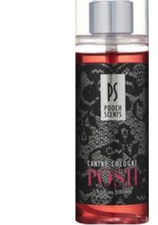
Dry shampoo and puppy cologne is another product that’s available, and excellent if your puppies are ‘a bit on the nose’ but not yet due for a bath. Dry shampoo for dogs and puppy perfume are a great alternative, quick and easy to use, no mess and dry almost instantly. You can use puppy wipes to wipe down any excess dirt off your dog first, and then apply the doggy deodoriser. Again make sure the dry shampoo or cologne you are using is made specifically for dogs and puppies, and is not a product intended for human use.
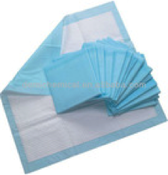
Wee Wee Pads are great to use as a toilet training tool, and make life easier as they are disposable too. Different style doggy gardens/astro turf are also available as toilet training aids for apartment dogs. Wee Wee Pads I find to be very effective, but still expect mistakes along the way as puppies are still learning.
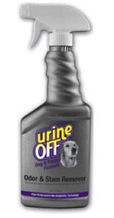
If your puppy ‘goes’ in the wrong spot, it is important to use the correct cleaning product, not only to disinfect and clean but also to eliminate odour. If your puppy can smell even the faintest remnants of where they have previously gone, they will be inclined to use the same spot again. If you use ammonia containing cleaning agents, this will also attract your puppy to mark these spots continuously. I prefer to use UrineOff as I find the product very effective, not only to keep the floors clean but also to deter puppy from going there again.
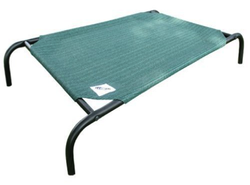
Bedding is important and having suitable bedding is essential. If your puppy is outdoors they will require a suspended/trampoline style bed in order to keep them elevated off the cold ground and also prevent hip dysplasia. (In addition to also requiring a kennel, which can both be placed somewhere they will be protected from the elements and extreme weather conditions).
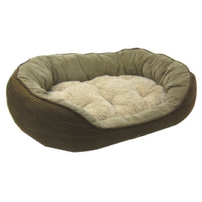
If your puppy is indoors its nice to have a soft, comfy bed to lie on whilst the family lay on the lounge to watch TV. Give your puppy their own bed, this is important so they know their place and understand the peeking order. Your puppies need to understand they do not own the lounge which you lay on, they have their own spot to rest and lie on the floor on their own bed, and may only join you on the couch when invited to – and not whenever suits them
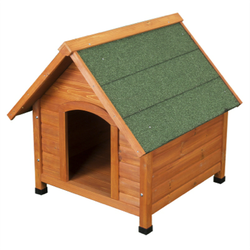
It is important that your dogs have a kennel, especially if they are predominately outdoor dogs. Dogs are den animals and a kennel is somewhere they can feel safe, and protected. Your dog will feel most comfortable and you will get most use from the kennel if it is placed nearer to the house. Be sure that the kennel is protected from wind and rain, and also from direct sunlight on those hot summer days.
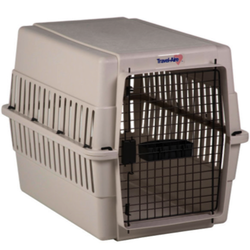
If your dogs are spending a lot of time indoors, even if only as a puppy – crates are a great tool that can be used to your advantage. Crate training is an excellent method to use for indoor dogs, and getting a larger crate when pup is young is a good idea because it will last you longer. If you are planning on your dog being an outside only dog, it is still a good idea to invest in a crate, and get your dog use to it for travelling (even if it will only be used for short trips).
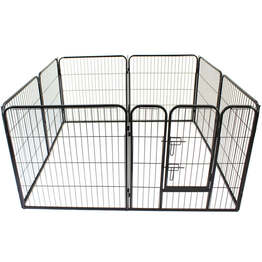
A puppy pen will be of great benefit to any new puppy owner. Puppy pens are excellent for assisting with toilet training, setting boundaries, and teaching young dogs new manners. Puppy pens are great for creating a designated area for your new pet, and are ideal to keep your puppy in whilst your busy throughout the day, and to keep them in of a night time.
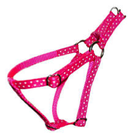
Getting young puppies use to a collar and harness is also recommended. Even though you cannot take your puppy out until after their 3rd vaccination, it is still a good idea to get them use to wearing a harness and lead in the meantime.
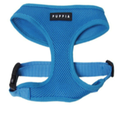
Getting puppies use to wearing a harness makes things easier, so when you are allowed to take them out for walks they have already become accustomed to wearing a harness, and what it feels like to be on a lead. There are many different types of harnesses available.
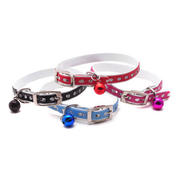
Collars are important for puppies too, but don’t stress if you cant find a collar small enough to fit. I normally use kitten collars, because they are smaller and better suited. Kitten collars also have a bell attached so you can hear where they are!
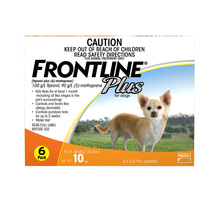
Wormer is important for growing pups, and you must treat for intestinal parasites every 2 weeks until 16 weeks old. After that dogs are required to be treated once every 3 months. Drontal, Milbemax and Canex are all good products to use.
Treating for fleas and external parasites is also important and should be done on a monthly basis. We use Frontline, Advocate and Revolution as spot-on treatments, which are applied topically to the dogs skin (generally on the back of the neck). Flea tablets are also available which can be given orally, including Comfortis and Capstar.
If you do happen to be overcome with a flea infestation, even if it is only mild – you will need to use an insecticidal spray on the environment in conjunction with the above to effectively eliminate the parasites.
Treating for fleas and external parasites is also important and should be done on a monthly basis. We use Frontline, Advocate and Revolution as spot-on treatments, which are applied topically to the dogs skin (generally on the back of the neck). Flea tablets are also available which can be given orally, including Comfortis and Capstar.
If you do happen to be overcome with a flea infestation, even if it is only mild – you will need to use an insecticidal spray on the environment in conjunction with the above to effectively eliminate the parasites.
The above are a few of the products and tools used by us here at Cottage Canines, that we have found beneficial in raising young pups into dogs. We hope that this has been helpful, and for any additional advice or tips please feel free to Contact Us. Puppy pre-school is also highly recommended, even if you're not a first time dog owner.